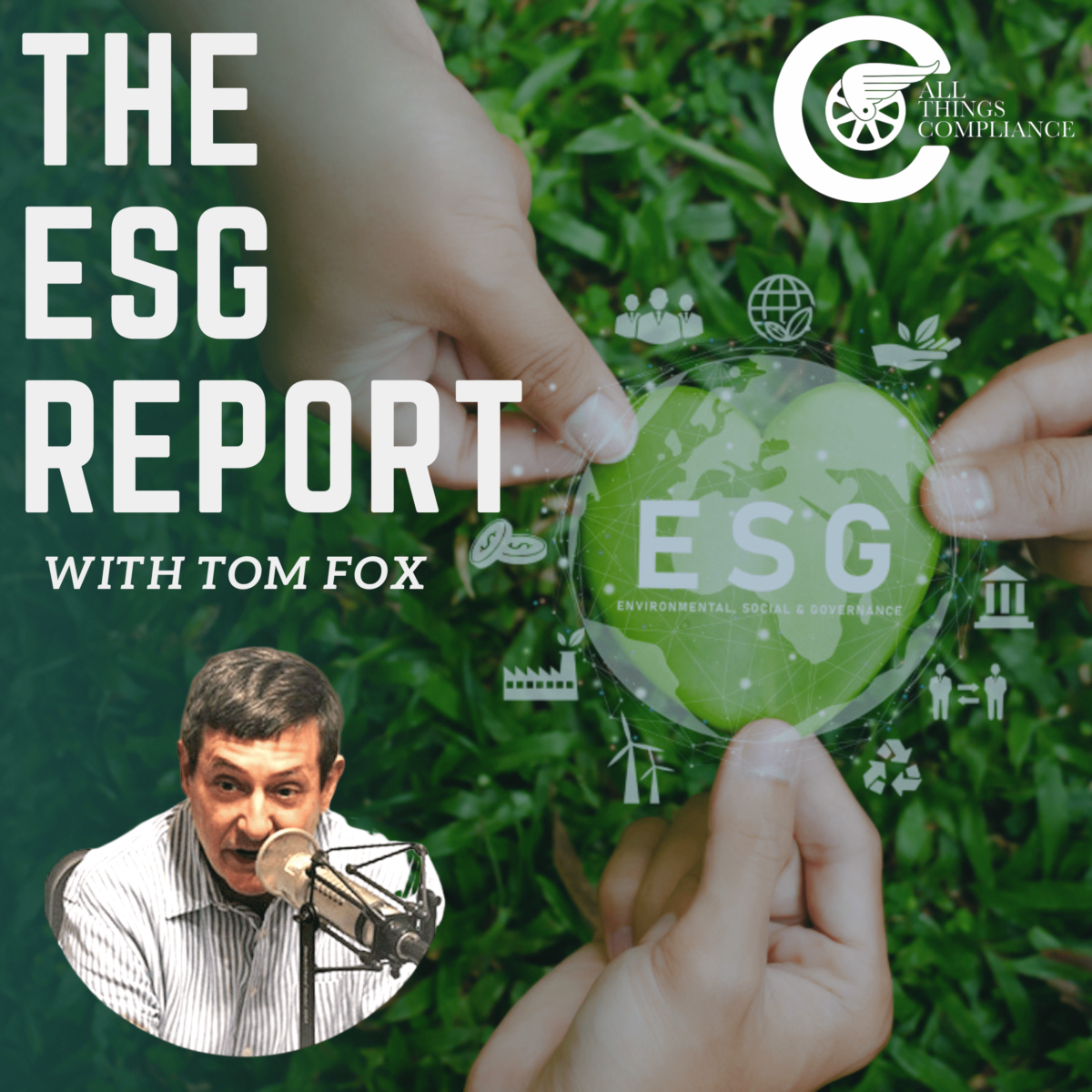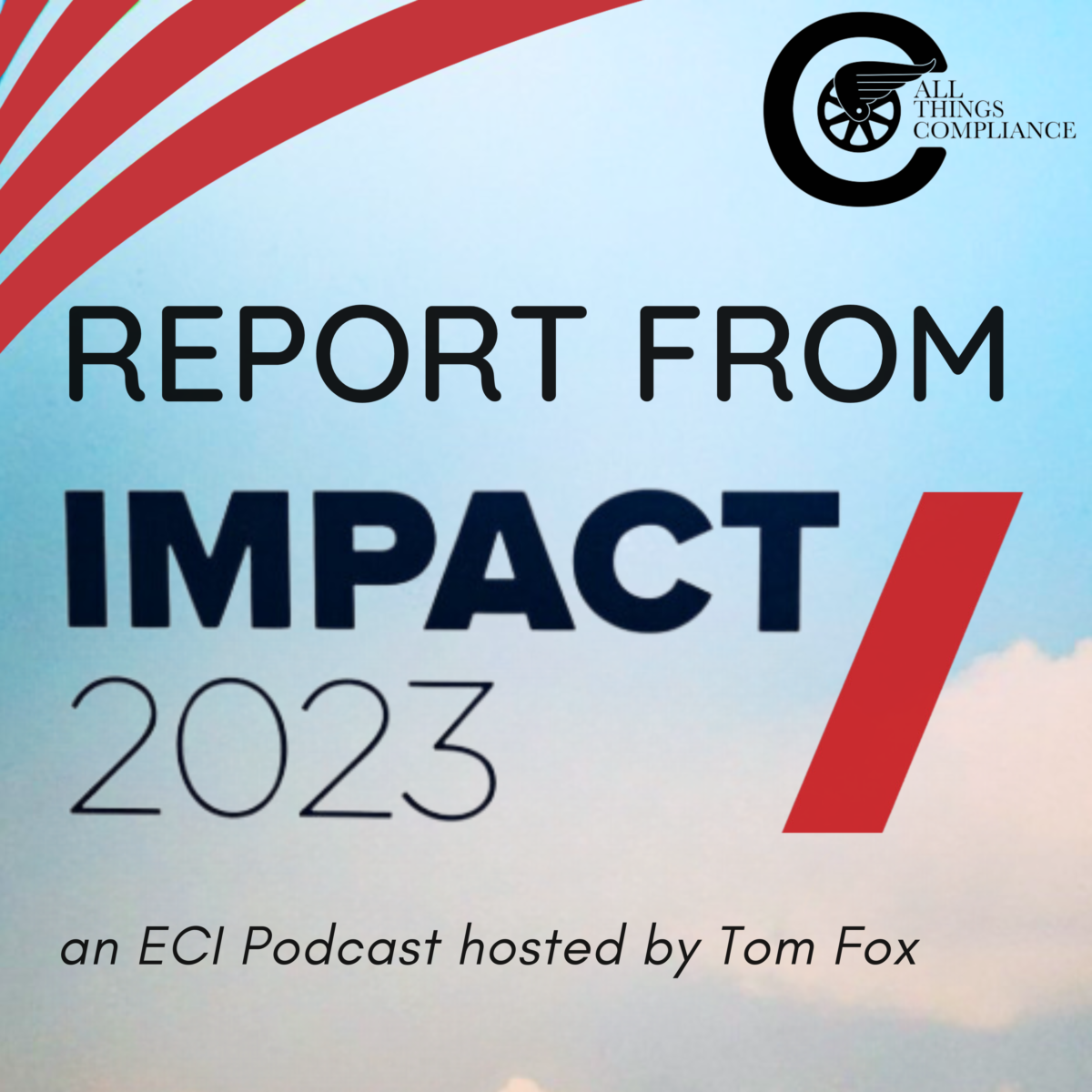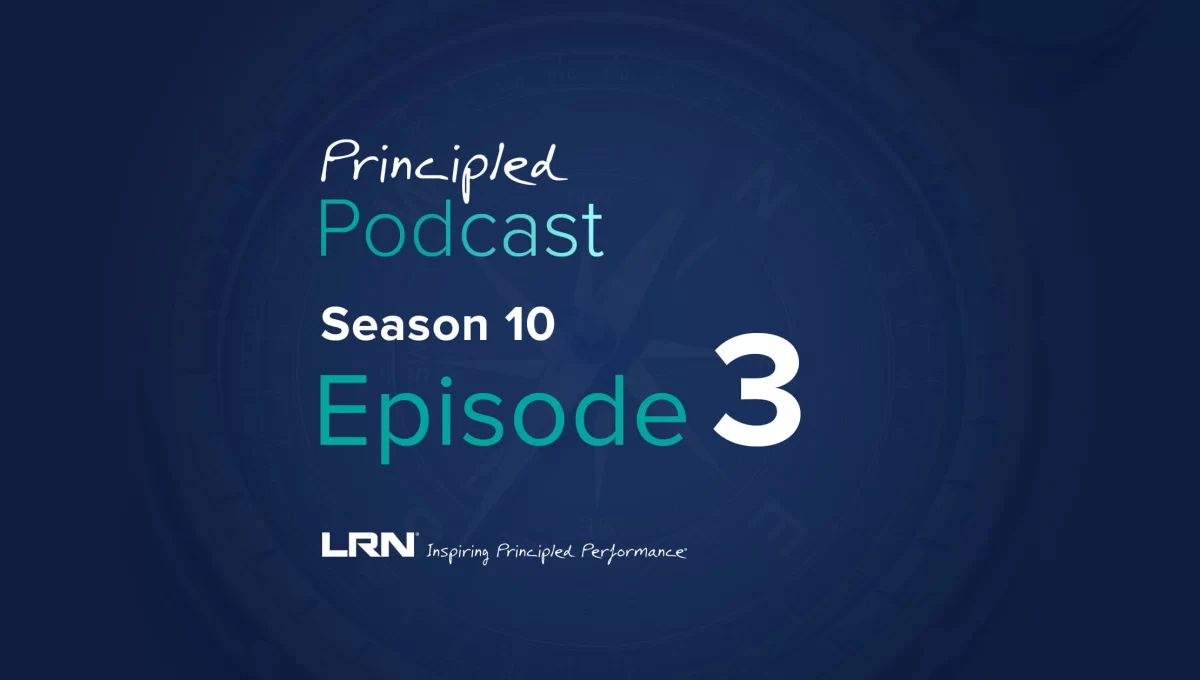I recently had the opportunity to visit with folks from Diligent. We look down the road at key issues in 2024 in a podcast series sponsored by Diligent entitled Compliance Professionals Adapting to Change: Industries, Regulations, and Beyond. I was able to chat with Nicholas Latham, Renee Murphy, Jessica Czeczuga, Yee Chow, and Alexander Cotoia. Over this series, we discussed compliant communications in regulated industries, managing conflicts of interest at the Board level, the Board’s role in compliance training and communications, navigating the current ESG landscape, and professional growth and mentorship in compliance. In this Post 4, we discuss the continuing evolving landscape of ESG with Yee Chow.
The Chief Compliance Officer (CCO) role has undergone a significant evolution in the realm of Environmental, Social, and Governance (ESG) compliance. What was once a secondary focus has now become a vital part of the agenda for global corporations. This shift has led to CCOs taking on the responsibility of overseeing compliance with ESG standards at the highest organizational level.
One of the key factors driving this evolution is the rise in regulation and mandatory reporting on ESG factors. Governments, stock exchanges, and regulatory bodies have pushed for compulsory reporting, bringing new challenges for companies. They are now required to provide more detailed operational and value chain information. For example, companies are expected to report not only on their climate impact but also on the climate impact of their customers and suppliers. This increased level of reporting necessitates gathering extensive data, which can be a challenge for organizations.
Companies need to establish a clear leadership structure for ESG compliance to address these challenges. The specific system may vary from company to company, but some key components should be in place. Firstly, there needs to be a point of contact within the organization responsible for coordinating ESG efforts and ensuring compliance. This role is often filled by a sustainability professional who works closely with different business units. Secondly, there needs to be accountability for the ESG program, which usually falls under the purview of the Chief Compliance Officer or even the Chief Executive Officer. The accountability for ESG compliance should ultimately rest with the organization’s highest leadership levels.
In addition to a clear leadership structure, companies recognize the importance of involving various stakeholders in the ESG compliance process. It is no longer a single department’s responsibility but a team effort that consists of all business units and leaders within the company. Committees are often established to drive the ESG strategy and agenda forward, ensuring that all relevant parties are involved.
Educating the Board of directors on their role in ESG compliance is crucial. While not every board member needs to be an expert in the details of ESG, they should have a high-level understanding of its implications for business growth, drivers, and regulatory compliance. ESG should be integrated into board meetings and discussions, driven by the compliance and regulatory space and the demands of customers and stakeholders. This level of involvement from the Board helps drive change within the organization and ensures that ESG compliance is taken seriously.
The evolution of the CCO’s role in ESG compliance is driven by the need to meet regulatory requirements, provide detailed reporting, and address stakeholders’ expectations. Companies are recognizing the value of non-financial data for business performance and opportunities. By establishing clear leadership structures, involving various stakeholders, and educating the Board, organizations can navigate the challenges associated with ESG compliance and make informed decisions that align with their values and goals.
In conclusion, the evolution of the Chief Compliance Officer’s role in ESG compliance reflects the growing importance of ESG in the corporate world. With the rise in regulation and mandatory reporting, companies face new challenges in gathering and reporting ESG data. However, by establishing clear leadership structures, involving stakeholders, and educating the Board, organizations can successfully navigate these challenges and embrace ESG compliance opportunities.
Ready for Purpose-Driven Compliance? Diligent equips leaders with the tools to build, monitor, and maintain an open, transparent ethics and compliance culture. For more information and to book a demo, visit Diligent.com
Join us tomorrow, where we conclude our series with a review of professional development and mentoring for compliance professionals.












